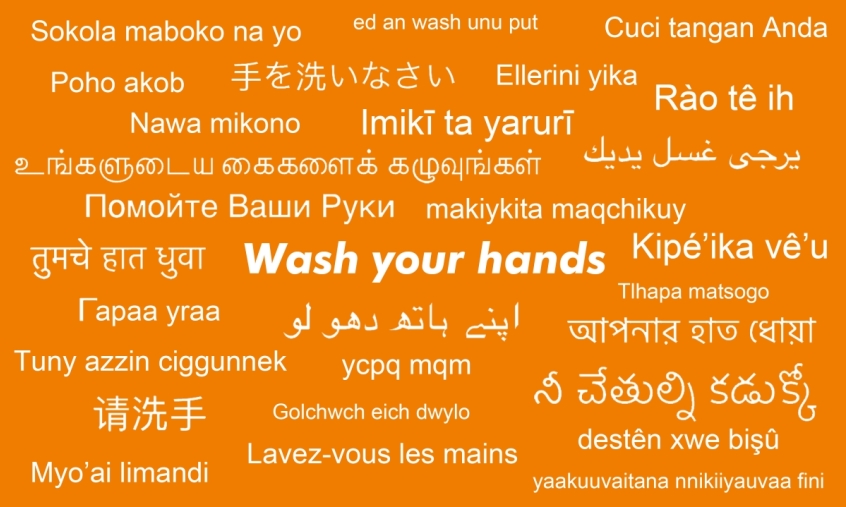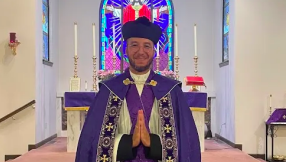
Governments around the world have been pushing urgent health warnings to slow the spread of coronavirus, but Wycliffe Bible Translators is working to ensure that hundreds of minority people groups do not miss out on these key messages because they speak a different language.
Its translators are now putting their language expertise to use translating health warnings like 'wash your hands' in over 500 languages not currently supported on any public translation platform.
The pioneering work is being led by Steve Moitozo, Daniel Whitenack and Rob Hess of SIL International, a partner organisation of Wycliffe Bible Translators, with a helping hand from AI.
"Much of the world's digital media is available in only a couple of dozen languages, and translation platforms like Google Translate only support around 100 languages," said Whitenack.
"This reality means that there are billions of people around the world who are marginalised due to a lack of timely health information."
State-of-the-art AI techniques have allowed the team to publish translations of 'wash your hands' in 523 languages, but the project is also inviting people to submit their own corrections or add to the list of translations.
The team is drawing on the Bible translation work that has already taken place in these minority languages, and combined AI with the Facebook Research platform to rapidly generate coronavirus updates and get them into the hands of health workers as quickly as possible.
Whitenack said that being able to understand a message in a person's mother tongue could be the difference between life and death.
"With the coronavirus (Covid-19) pandemic still spreading worldwide, this work has emphasised the need for immediate, rapid translation of health-related phrases into the many languages that are not currently adequately covered by technology," he said.
"When working with marginalised language groups, health workers need to have key phrases such as 'Wash your hands' or 'Keep your distance' at their fingertips in those languages.
"People may only vaguely understand the national language, so it is vital to speak their language or else the message will not get through.

"It's like your doctor telling you to 'Was je handen' [in Dutch] or 'Lavati le mani' [in Italian]. You might get the gist, but you will probably miss the details – and that could be life-threatening."
Some of the generated 'wash your hands' phrases, along with many human translated versions, have been made available online, with users able to contribute their own translations or corrections, and download local-language posters illustrating hand washing.
SIL has built a community of people to continue the work of bringing vital health information to local language groups during the pandemic, including a short book about coronavirus and related infographics.
"I'm not saying that this is a solution to the problem of information spread about coronavirus and other health-related issues, nor will it work in all languages," Whitenack continued.
"But we need to be trying to develop creative solutions to problems related to the current crisis. Maybe this is a small piece of a very large puzzle.
"But this work and the development of such phrases should help health professionals working in some of these marginalised language groups, as they seek to disseminate vital, life-saving information to people in need."
James Poole, Executive Director of Wycliffe, said: "The highly specialised work of people like Daniel and his team is vital to the on-going efforts in Bible translation.
"But as this latest application shows, as well as addressing people's spiritual wellbeing, Bible translation work also has a significant impact in areas such as health and physical wellbeing. At a time of a world pandemic, this sort of work comes into its own."













